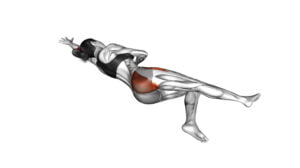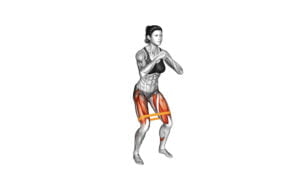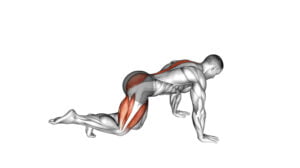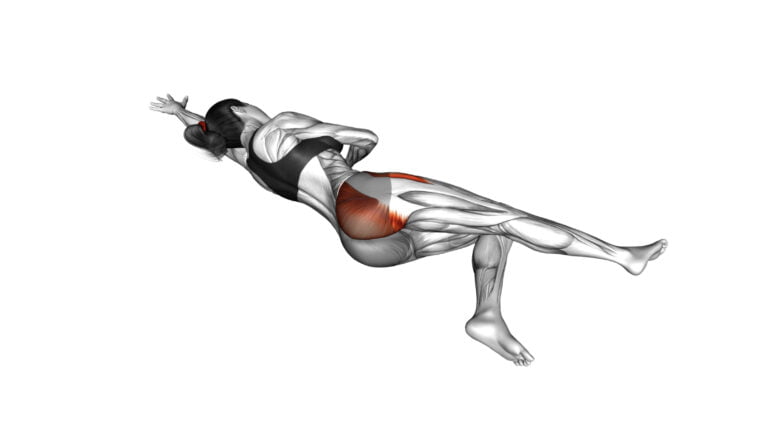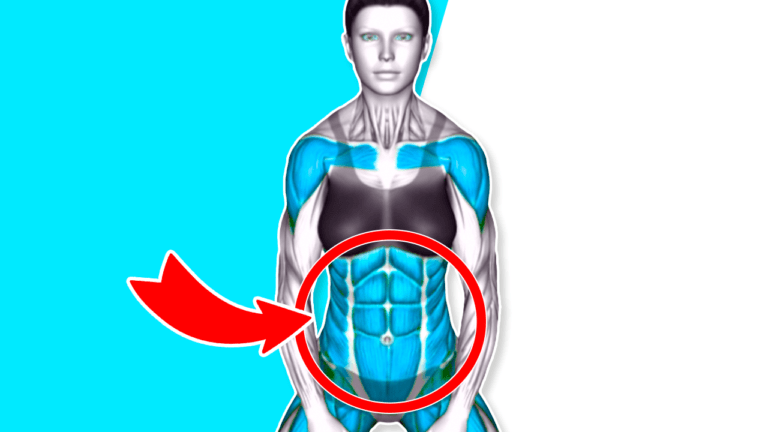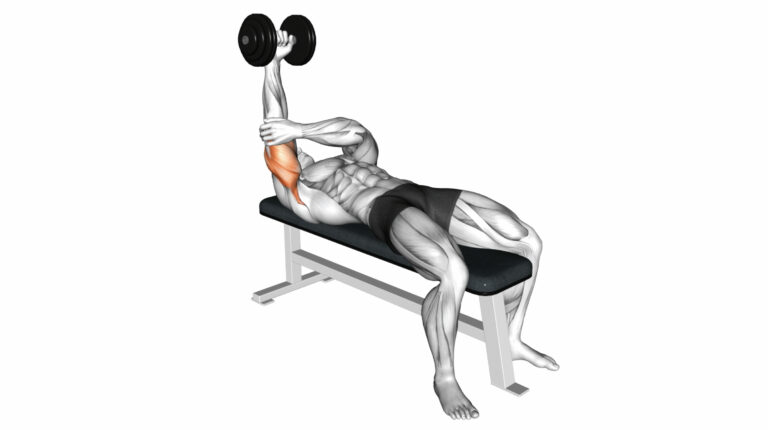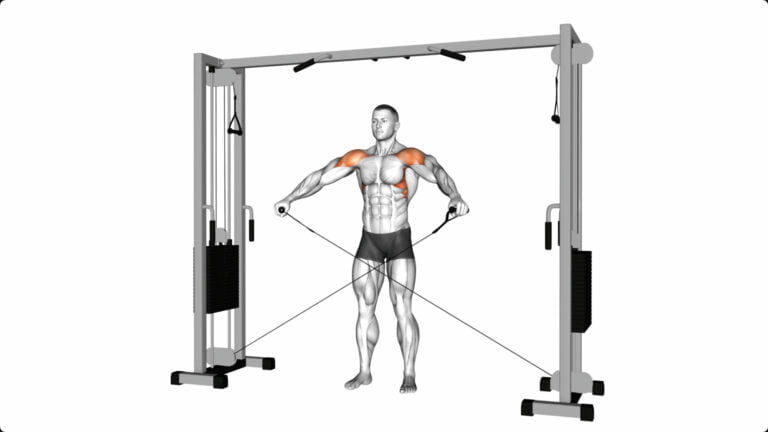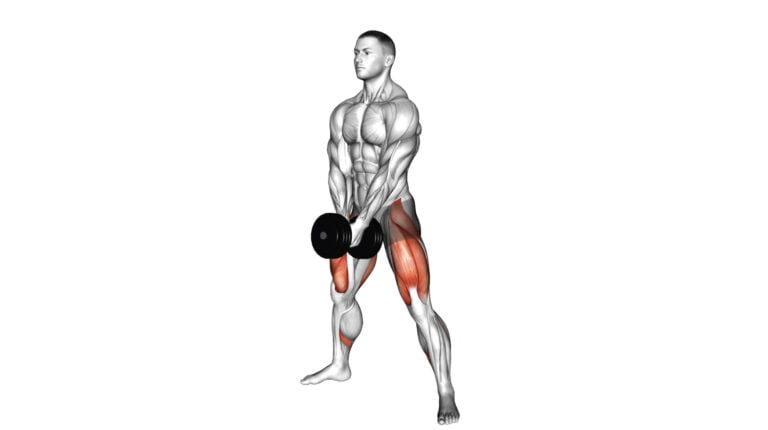10 Best Adductor Exercises For Strengthening Your Hips
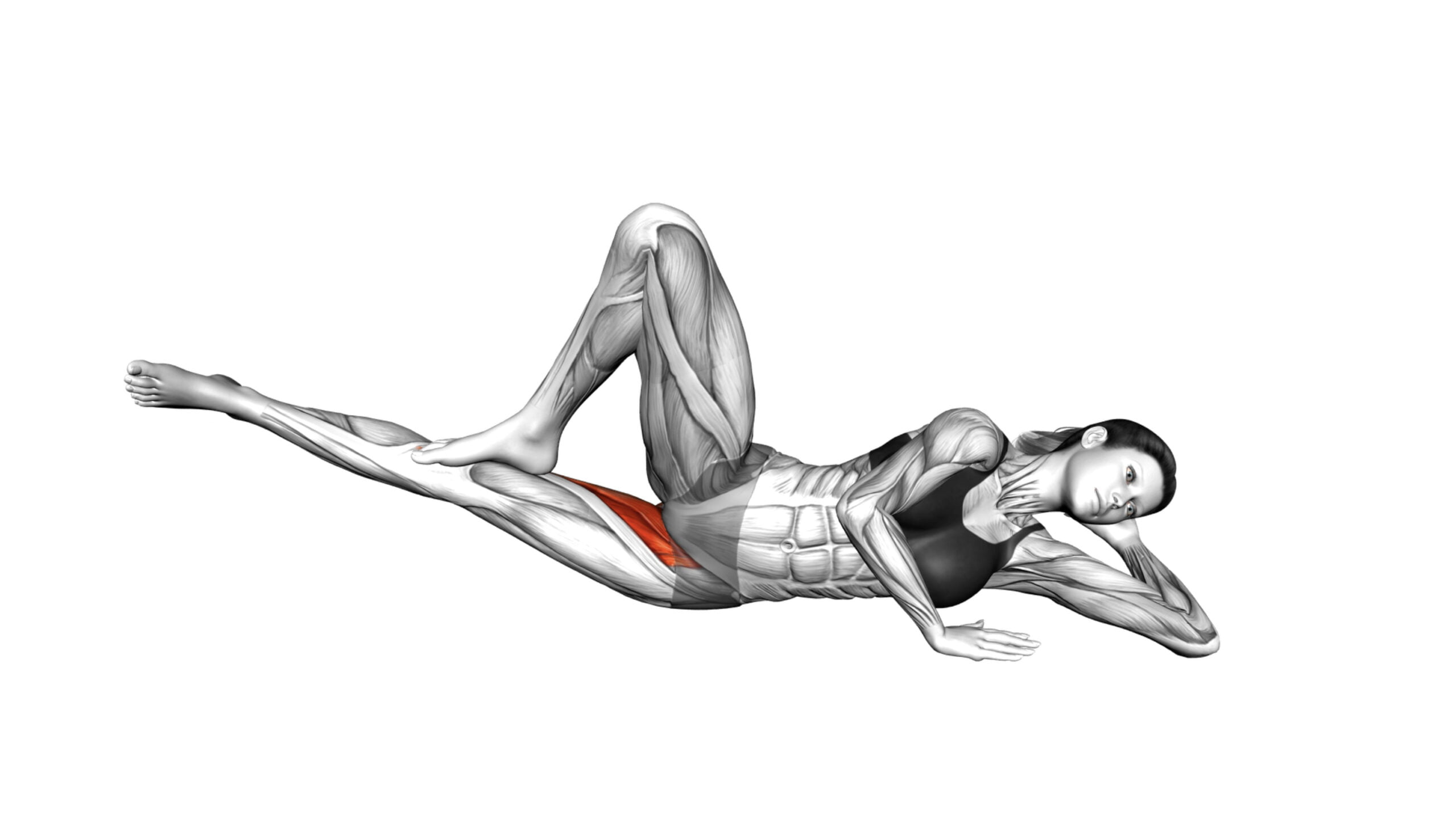
Strengthening your hips is crucial, but often overlooked. As a fitness expert with years of experience in helping individuals enhance their physical health, I’ve seen the transformative power of focusing on specific muscle groups.
The adductors are one such group—vital for mobility and stability yet frequently neglected in popular workout routines. Incorporating the best adductor exercises into your routine can significantly improve your lower body strength and help prevent injuries.
What many don’t realize is that weak adductors can throw off your balance and even affect how you walk or run. This article delves deep into the world of hip strengthening by highlighting 10 impactful adductor exercises.
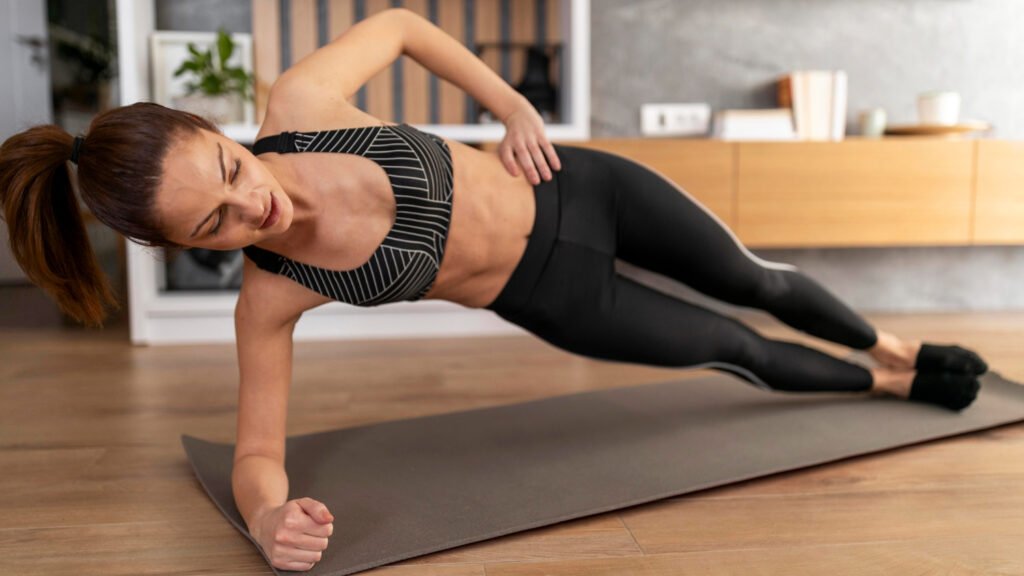
These movements will not only support injury prevention but also boost performance across various activities. Time to strengthen those hips!
Key Takeaways
- Doing adductor exercises helps make your hips stronger and keeps you from getting hurt. Exercises like ballerina foot tap adduction and side plank hip adduction work well for this.
- These workouts improve how well you do big moves like squats and deadlifts by making your hips more stable. They also help you move better in sports or everyday activities.
- Adductor exercises can increase the flexibility in your hips, which means less chance of getting muscle injuries.
- You don’t need fancy tools to get started. Many exercises use just your body weight, but adding things like bands or weights can make them tougher as you get stronger.
- It’s important to warm up first, go slow with adding more challenge, and really focus on feeling the muscles work during these exercises for the best results.
Understanding the Adductors
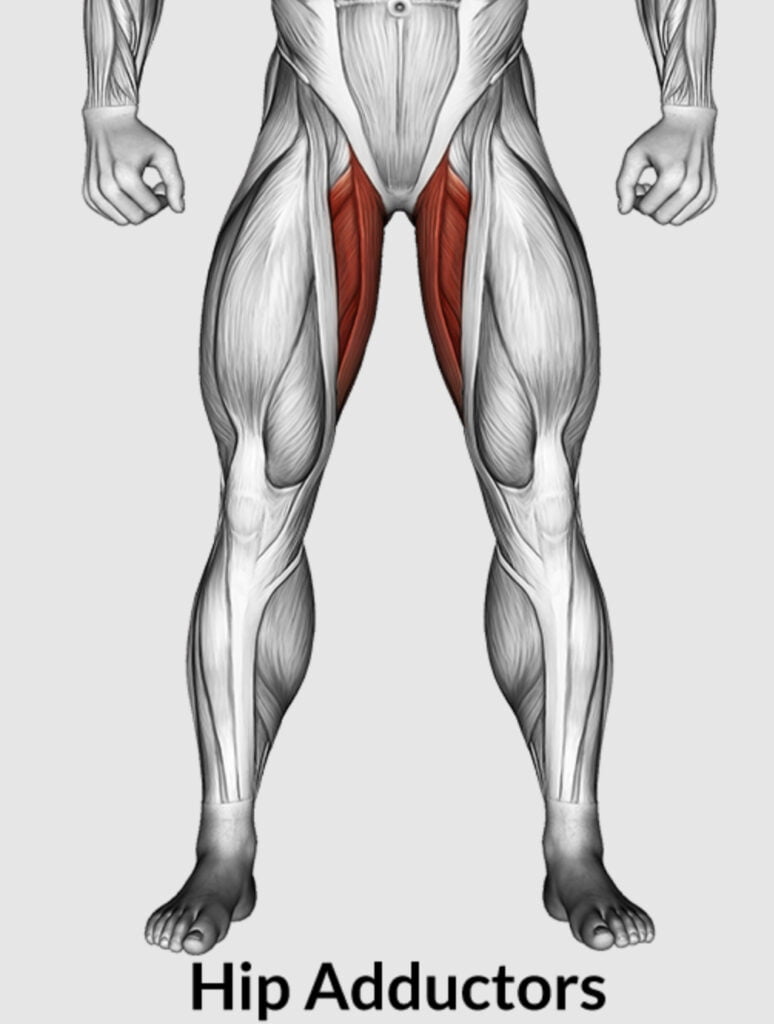
The adductors are a group of muscles found in the thighs that help move the legs inward towards the midline of the body. They work against the abductors, which move the legs outward away from the midline.
Understanding and training these muscles can greatly benefit overall hip strength and stability, making them essential for leg movements like lunges, squats, and deadlifts – some of the best adductor exercises available.
What are the adductors and their function?
Adductors are a group of muscles inside your thighs. They work by pulling your legs together. These muscles play a big role in how you move. This includes walking, squatting, and many sports activities.
Adductors help with the stability of your pelvis as well.
These muscles also aid in movements where you need to bring your leg towards the middle line of your body. For example, when playing soccer or doing side lunges, they get activated.
Keeping them strong is key for balance and smooth movement.
Adductors vs abductors
So, we’ve just looked at what adductors do. Now let’s talk about how they differ from abductors. The main job of the adductors is to pull your legs together. They’re like the team working to bring things in close.
On the other side, abductors do the opposite – they move your legs apart. Think of them as pushing away or opening up space.
Both groups are key players for moving your hips and keeping you stable when you walk, run, or do any activity really. Without these muscles working well together, doing simple things could get tricky fast!
Benefits of Adductor Exercises
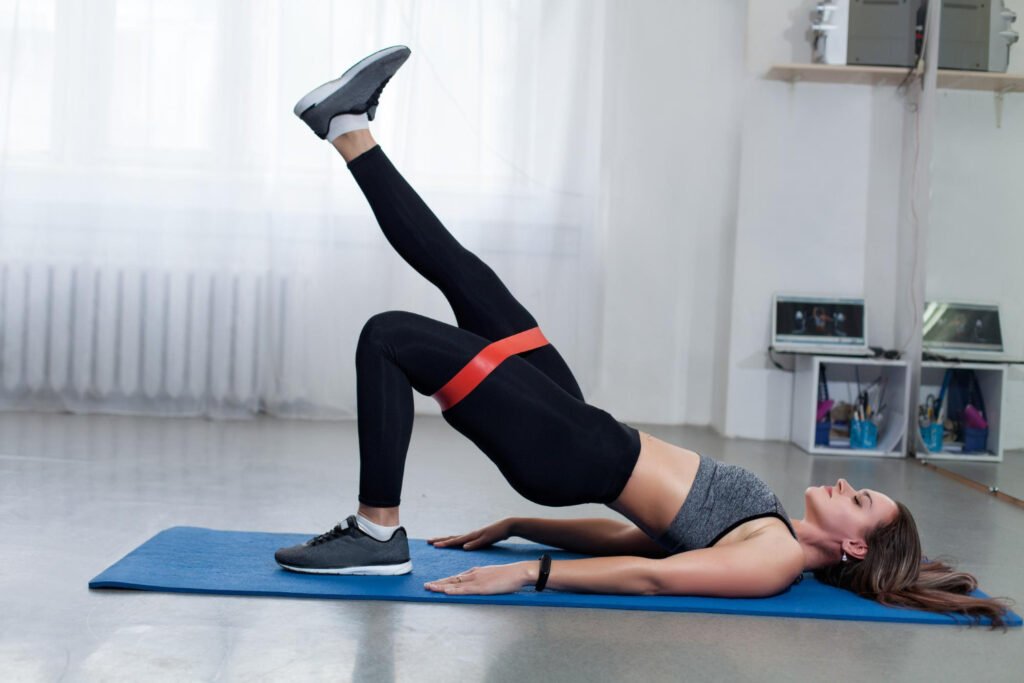
Strengthening your adductors can help prevent injuries and improve compound lifts, increasing flexibility. Best adductor exercises can be beneficial for strengthening hips.
Prevents injuries
Strong adductor muscles keep your legs stable and protect your hips and knees. This helps you avoid injuries like groin strains or hernias, especially during sports or heavy lifting.
Exercises that target these muscles, like side lying leg adductions and ballerina foot taps, make sure everything stays in place as it should.
Building up the strength in this part of your body also helps stop knee pain. A lot of times, hurting knees are due to weak hips and inner thighs. So by focusing on these exercises, you’re not just keeping injuries away but also taking care of other parts of your body too.
Improves compound lifts
Adductor exercises play a crucial role in enhancing your performance in compound lifts like squats and deadlifts. These exercises help to stabilize your hips and improve overall lower-body strength, allowing you to lift heavier weights with better form.
By strengthening the adductors, you also reduce the risk of injury during these complex movements, promoting better muscle balance and control throughout the range of motion required for compound lifts.
Incorporating adductor exercises into your workout routine can significantly contribute to your strength gains in essential compound movements.
By including adductor exercises in your training regimen, you can boost the stability and support provided by these muscles while performing compound lifts such as squats and deadlifts.
Increases flexibility
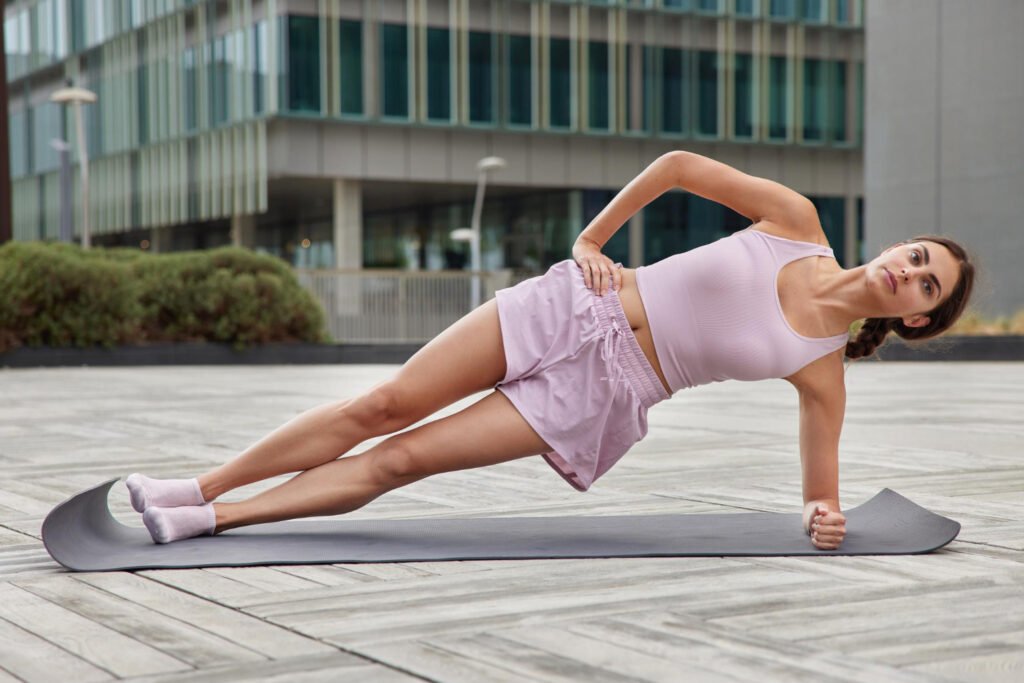
Improving flexibility is a critical aspect of adductor exercises. By focusing on dynamic stretching and full ranges of motion, you can significantly increase the flexibility of your hips.
These exercises help in enhancing mobility and reducing the risk of injuries associated with tight muscles. Incorporating movements that involve deep squats, sumo squats, and static stretching into your routine contributes to greater flexibility in the hip joints.
It’s essential to prioritize flexibility alongside strength for overall muscle balance and joint health.
Top 10 Best Adductor Exercises
The best adductor exercises for hip strength include Ballerina Foot Tap Adduction, Bodyweight Side Lying Leg Adduction, Band Hip Adduction, Cable Hip Adduction, Lever Seated Hip Adduction, Lying Abduction Adduction, Lying Hip Adduction, Pulsing Adduction and Abduction, Side Lying Hip Adduction and Side Plank Hip Adduction.
These exercises can enhance hip strength and prevent injuries when performed consistently.
1. Ballerina Foot Tap Adduction
Ballerina Foot Tap Adduction is a simple yet effective exercise that targets the inner thighs and hip adductors. To perform this exercise, stand tall with feet together and rise onto your toes like a ballerina.
Then, tap one foot out to the side, keeping the toe pointed forward while engaging the inner thigh muscles. Alternate tapping each foot for several repetitions to work on hip stability and strength in a fun and graceful manner.
This exercise helps in improving balance, strengthening your hips, enhancing muscle coordination, and preventing potential injuries by targeting those hard-to-reach adductor muscles often overlooked in typical workout routines.
2. Bodyweight Side Lying Leg Adduction
When performing bodyweight side lying leg adduction, you lie on your side with the bottom leg straight and top leg bent. Then, lift the bottom leg upwards against gravity before lowering it back down.
This exercise effectively targets the muscles in your inner thigh and helps to improve hip stability.
The movement recruits the adductor longus and adductor brevis muscles, enhancing their strength and flexibility. It is particularly beneficial for individuals recovering from an injury or those looking to prevent future issues related to hip function.
3. Band Hip Adduction
Band hip adduction is a simple yet effective exercise that targets the inner thigh muscles. To do this, wrap a resistance band around your legs, just above the knees while lying on your back with your knees bent.
Slowly squeeze your legs together against the resistance of the band and then release. This movement engages the adductor muscles, helping to strengthen and tone them. It’s a great exercise to improve hip stability and prevent injuries related to weak adductors.
By incorporating band hip adduction into your routine, you can build stronger inner thigh muscles, which in turn supports overall lower body strength and stability during various movements like walking, running, or even standing up from a seated position.
4. Cable Hip Adduction
Cable Hip Adduction is an effective adductor exercise that targets the inner thigh muscles and helps in enhancing hip strength. By attaching an ankle cuff to a low pulley cable machine and setting an appropriate weight, you can perform this exercise by standing sideways to the machine and lifting your leg across the front of your body toward the midline.
This movement activates the adductor muscles, aiding in hip stability and flexibility.
Engaging in Cable Hip Adduction not only strengthens your adductor muscles but also complements other compound lower body movements like squats and deadlifts. It’s a powerful addition to any lower body workout routine, promoting balanced muscle development for improved overall performance.
5. Lever Seated Hip Adduction
Lever Seated Hip Adduction is performed sitting down.. using a machine with a padded lever that you bring toward your midline, working the inner thigh muscles. Start by adjusting the weight on the machine and positioning yourself comfortably.
Then, grip the handles or sit securely against the pads and smoothly move your legs together against resistance to engage those adductor muscles.
This exercise effectively targets your inner thighs and helps in building strength for hip stabilization.. It also contributes to improved movement patterns during activities involving leg motion such as walking, running, or even squatting.
6. Lying Abduction Adduction
Lying Abduction Adduction is an effective exercise for targeting the inner and outer thigh muscles. To perform this exercise, lie on your side with the lower leg slightly bent to provide stability.
Then, lift the top leg upwards while keeping it straight and slowly lower it back down. This movement engages the adductor muscles when lifting the leg up and involves abductor muscles during the downward phase.
Lying Abduction Adduction is a beneficial exercise for strengthening and toning the hip adductors and abductors in a controlled manner. This exercise helps improve balance, stability, and overall lower body strength while reducing the risk of injury by enhancing muscle engagement around the hips.
7. Lying Hip Adduction
Lying hip adduction is a great way to work your inner thigh muscles. To do this move, lie on your side with your bottom leg straight and top leg bent. Rest the foot of your top leg on the floor in front of your other leg.
Then, lift the bottom leg up while keeping it straight and lower it back down. You can make this exercise harder by adding ankle weights or a resistance band above your knees.
Incorporate lying hip adductions into your workout routine for stronger inner thighs. This exercise targets the adductor muscles in an effective way, helping you build stability and strength in that area.
8. Pulsing Adduction and Abduction
Transitioning from lying hip adduction to pulsing adduction and abduction, these exercises focus on engaging the inner and outer thigh muscles with quick, repetitive movements. Pulsing adduction involves bringing the legs together in short, rapid pulses to target the inner thighs.
On the other hand, pulsing abduction works by rapidly lifting the leg sideways to activate the outer thigh and hip muscles. These dynamic movements effectively work on both strength and endurance of the adductor and abductor muscles.
Incorporating pulsing adduction and abduction exercises into your routine can help in boosting muscle engagement while adding variety to your workout regimen. This form of training can be particularly effective for enhancing stability, balance, and overall lower body strength.
9. Side Lying Hip Adduction
Moving on from pulsing adduction and abduction, let’s transition to side lying hip adduction. This exercise targets the inner thigh muscles and helps in strengthening the hip adductors.
To perform this, lie on your side with your legs stacked, then slowly lift your top leg upwards as far as possible without rotating your hips or leaning backward. Hold for a moment before lowering it back down.
This exercise can be performed using just body weight or by adding resistance bands for an extra challenge. It’s a great way to work on strengthening the often neglected inner thigh muscles while also promoting hip stability and balance.
10. Side Plank Hip Adduction
The side plank hip adduction is a challenging exercise that targets the muscles of your inner thighs and core. To do this exercise, start in a side plank position with your elbow directly beneath your shoulder and your body in a straight line.
Then, lower your bottom hip towards the floor and lift it back up using the muscles on the inside of your thigh. Aim for 3 sets of 10-12 reps on each side to effectively work these muscles.
Moving on to another effective adductor exercise – Lying Hip Adduction.
Recommended Sets And Reps
After performing the Side Plank Hip Adduction, it’s recommended to do 3 sets of 12-15 reps on each side for beginners. For intermediate and advanced levels, aim for 3-4 sets of 15-20 reps per side.
Take a brief rest between each set to maintain form and maximize effort. Keep your movements controlled throughout the exercise to ensure effective engagement of the adductor muscles.
It is advisable especially for beginners to start with lighter resistance and gradually increase as strength improves. Staying mindful of proper form during both phases—contraction and extension—is essential in reaping maximum benefits from this workout routine.
Tips for Training the Adductors
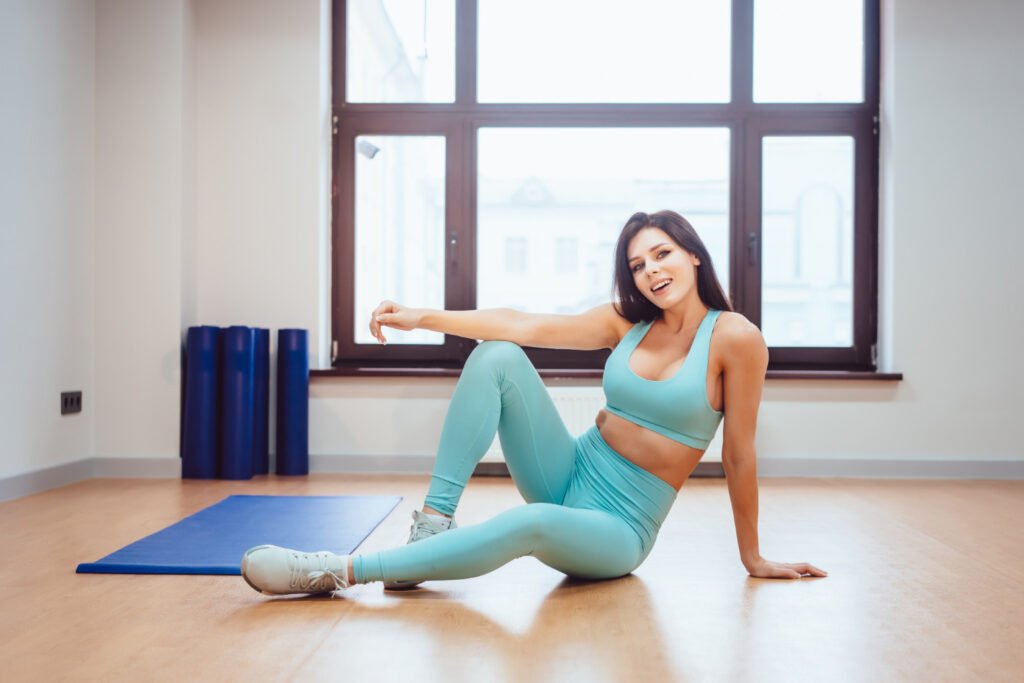
Train your adductors smartly by warming up and stretching beforehand. Gradually increase the resistance and focus on feeling the contraction during exercises. Consider using equipment like a resistance band or weights to maximize the benefits of these best adductor exercises.
Warm up and stretch beforehand
Ensure you warm up and stretch before starting adductor exercises. This helps prepare your muscles, prevents injuries, and improves performance. Gradually increasing range of motion and resistance during warm-up can also help ease into the exercises.
Increasing flexibility in areas around the hips through stretching beforehand will enable better movement during adductor exercises. It’s also important to focus on feeling the contraction in your adductors while warming up, which prepares them for more intense movements later on.
Using equipment like a resistance band or weights can aid in conditioning these muscles before moving onto heavier workouts.
Gradually increase range of motion and resistance
After warming up and stretching, gradually increase how far you move your legs during exercises. Start with small movements, then slowly try to go further each time. You can also add more weight or resistance as your muscles get stronger.
This helps build endurance and prevents injuries.
As part of this progression in exercise, it’s essential to listen to your body and avoid pushing too hard too quickly. Gradually increasing the challenge helps build strength steadily over time without risking strain or injury.
Focus on feeling the contraction
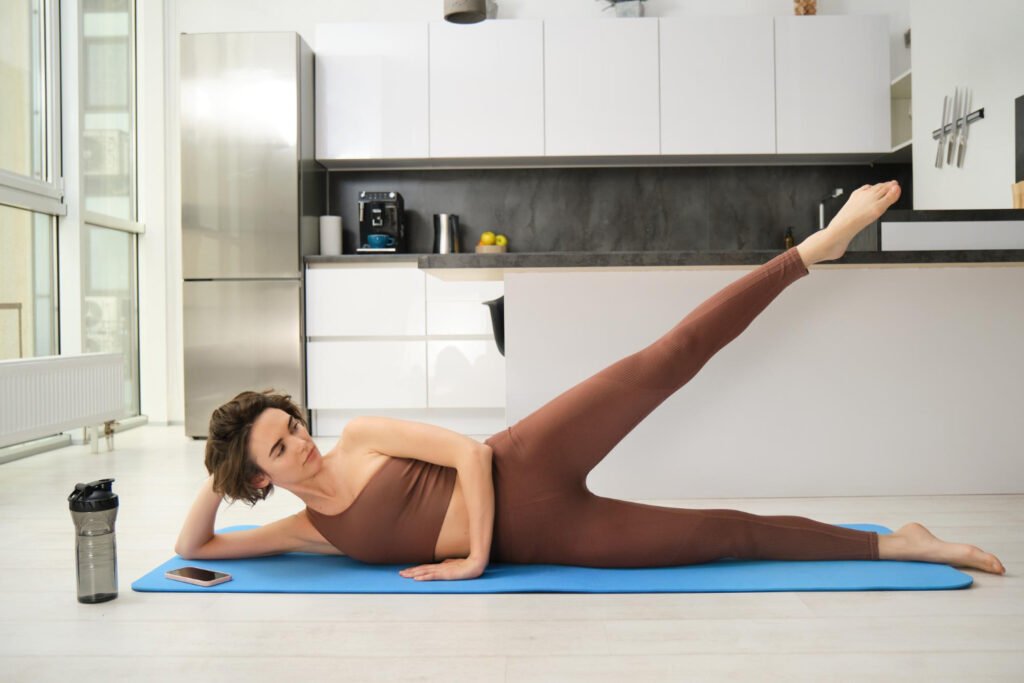
Transitioning from gradually increasing the range of motion and resistance, it’s important to focus on feeling the contraction while performing adductor exercises. Concentrating on the muscle engagement during each movement can enhance the effectiveness of the exercise and reduce the risk of using incorrect muscles.
When executing adductor exercises like ballerina foot tap adduction or side plank hip adduction, be mindful of actively engaging your inner thigh muscles. Emphasizing this mind-muscle connection will maximize the benefits and promote balanced strength development in your hips.
By concentrating on feeling the contraction, you ensure that your adductor workouts are targeted and productive.
Consider using equipment like a resistance band or weights
Add some resistance to your adductor exercises. Try a resistance band or weights for an extra challenge and better results. It helps strengthen those muscles effectively while adding variety to your routine.
Whether it’s a resistance band or handheld weights, they both work well in targeting the adductors and increasing their strength.
The bottom line: importance of adductor exercises for hip strength and injury prevention.
To sum up, prioritizing adductor exercises in your workout routine is crucial for enhancing hip strength and preventing injuries. These exercises specifically target the muscles responsible for bringing your legs together, ultimately fortifying your hips to better support other movements like squatting and deadlifting.
By incorporating these exercises into your regimen, you not only build strength but also lower the risk of developing painful conditions such as tendinopathy or tendonitis in this pivotal area of your body.
In a nutshell, integrating adductor exercises into your fitness regimen is vital for bolstering hip strength and averting potential injuries. These targeted workouts aim to strengthen the muscles engaged in pulling the legs inward, thereby reinforcing the stability and functionality of the hips during various activities such as squats and deadlifts.
Conclusion
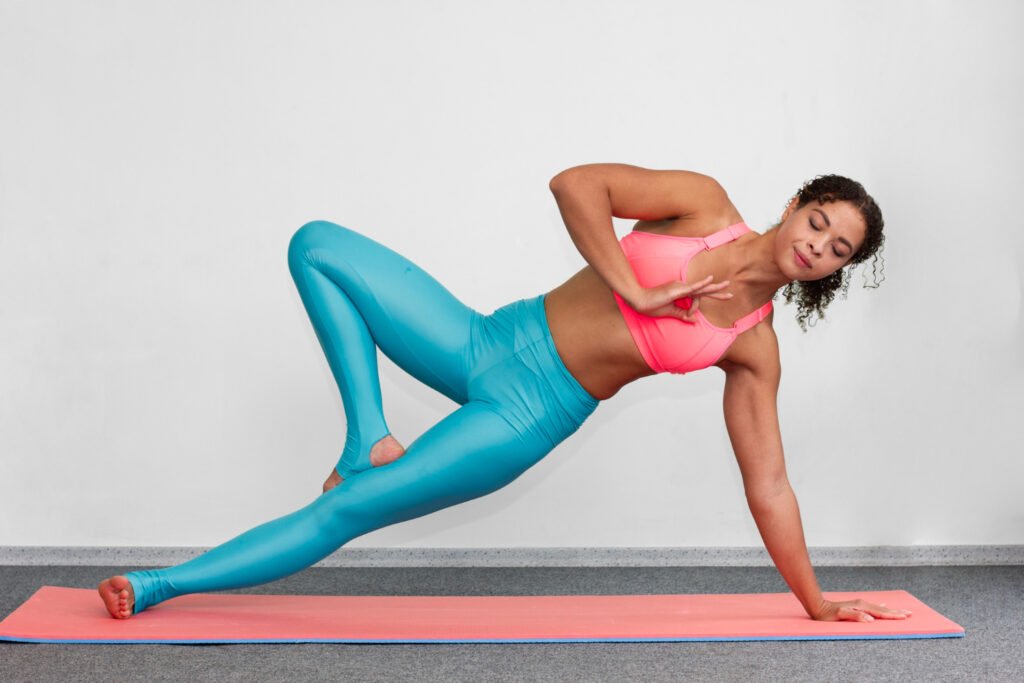
In essence, the best adductor exercises highlighted here aim to enhance hip strength and prevent injuries. By focusing on practical and straightforward strategies, these exercises can be easily integrated into your routine for efficient results.
Harnessing the benefits of these exercises could potentially lead to significant improvements in hip strength and flexibility. For further guidance, consider exploring additional resources or seeking professional advice to maximize the impact of these strategies.
Ultimately, taking action towards strengthening your hips through these best adductor exercises is a valuable step towards overall fitness and injury prevention.
FAQs
1. What are adductor exercises?
Adductor exercises focus on making your hip muscles, especially the inner thigh or medial thigh muscles, stronger. They involve movements that bring your legs together.
2. Why should I strengthen my hips?
Strengthening your hips helps with balance and makes walking or running easier. It also prevents injuries by supporting your knee joints and back.
3. Can I use weights for these exercises?
Yes! Using a kettlebell or barbell during squats adds more challenge, helping you build muscle in your glutes, hamstrings, and adductors even faster.
4. Are there easy exercises for beginners?
Absolutely! Regular squats without weights or simple leg lifts are great to start with. As you get stronger, try adding weightlifting to increase difficulty.
5. Do these workouts help other parts of the body too?
Indeed! While focusing on the adductors of the hip and thighs, these exercises also work out your abdominal muscles, glute muscles, and improve overall flexibility.
6. How often should I do these exercises?
For best results, aim to include them in your routine about 2-3 times a week. This gives enough time for muscle recovery while ensuring steady progress in strength training.

Author
Years ago, the spark of my life’s passion ignited in my mind the moment I stepped into the local gym for the first time. The inaugural bead of perspiration, the initial endeavor, the very first surge of endorphins, and a sense of pride that washed over me post-workout marked the beginning of my deep-seated interest in strength sports, fitness, and sports nutrition. This very curiosity blossomed rapidly into a profound fascination, propelling me to earn a Master’s degree in Physical Education from the Academy of Physical Education in Krakow, followed by a Sports Manager diploma from the Jagiellonian University. My journey of growth led me to gain more specialized qualifications, such as being a certified personal trainer with a focus on sports dietetics, a lifeguard, and an instructor for wellness and corrective gymnastics. Theoretical knowledge paired seamlessly with practical experience, reinforcing my belief that the transformation of individuals under my guidance was also a reflection of my personal growth. This belief holds true even today. Each day, I strive to push the boundaries and explore new realms. These realms gently elevate me to greater heights. The unique combination of passion for my field and the continuous quest for growth fuels my drive to break new ground.

